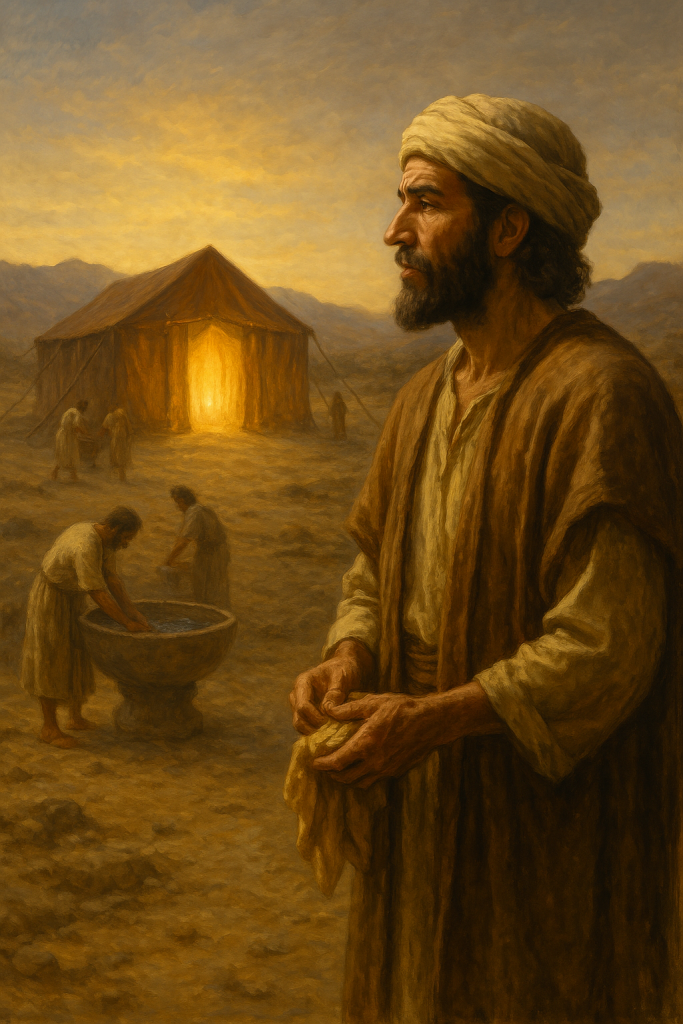In the Bible, the concept of uncleanness holds profound significance, influencing religious practices, personal conduct, and spiritual understanding. When asking what is uncleanness in the Bible, it is essential to recognize that this idea extends beyond mere physical impurity. Instead, it represents a condition that affects one’s ability to approach the sacred, participate in communal worship, or maintain fellowship with God.

Uncleanness in the Scriptures is often categorized into two major areas: ritual impurity and moral impurity. Ritual impurity typically arises from natural processes such as childbirth, illness, or contact with certain animals. These conditions were not inherently sinful but required specific rites of purification to restore the individual to a state of ceremonial cleanliness. In contrast, moral impurity stems from actions that violate God’s commands, including idolatry, sexual immorality, and injustice. These behaviors corrupted not just the individual but the community as a whole.
Moreover, understanding what does uncleanness mean in the Bible reveals that impurity served as a visible reminder of humanity’s separation from divine holiness. God’s covenant people were called to live distinctly, reflecting His purity in every aspect of life. Thus, teachings on uncleanness emphasized both the physical realities of living in a fallen world and the deeper spiritual truth about the need for redemption and restoration.
As we explore further, we will uncover how uncleanness shaped biblical life, the processes for purification, and the powerful transformation brought by Christ, who offered a path to ultimate spiritual cleansing.
What Does Uncleanness Mean in the Bible
To grasp the full meaning of what does uncleanness mean in the Bible, it is helpful to look at the original languages in which the Scriptures were written. In the Old Testament, the Hebrew word most commonly translated as “unclean” is ṭamê (טָמֵא). This term conveys the idea of being ritually impure, defiled, or separated from what is considered holy. Uncleanness could result from various causes, such as touching a corpse, contracting certain skin diseases, or experiencing bodily discharges, all outlined extensively in the book of Leviticus.
In the New Testament, the Greek word often used is akatharsia (ἀκαθαρσία), which extends the concept of impurity to include not just external conditions but also internal states of the heart and mind. Jesus Himself emphasized that impurity originates from within, citing evil thoughts, immoral behavior, and deceit as true sources of defilement (Mark 7:20-23).
Understanding what is uncleanness in the Bible requires recognizing that it is not merely about ceremonial regulations. Rather, it points to a deeper spiritual reality: the human condition of separation from God’s holiness. Ritual laws about uncleanness symbolized the broader truth that sin contaminates and distances humanity from the divine presence.
Therefore, when studying the biblical meaning of uncleanness, we find a profound message woven throughout Scripture. It reveals God’s desire for His people to pursue both external purity and inner transformation, preparing them to live in harmony with His perfect holiness.
Types of Uncleanness in the Bible
When studying what is uncleanness in the Bible, it becomes clear that Scripture identifies two major types of impurity: ritual uncleanness and moral uncleanness. Although they are related, each carries different implications for religious life and spiritual standing before God.
Ritual Uncleanness
Ritual uncleanness, primarily addressed in the Old Testament, concerned temporary conditions that made a person ceremonially unfit to participate in sacred activities. Common causes included:
- Contact with a dead body (Numbers 19:11-13)
- Skin diseases like leprosy (Leviticus 13)
- Bodily discharges (Leviticus 15)
- Eating certain animals considered unclean (Leviticus 11)
It is important to note that these situations did not necessarily imply sin. Rather, they reflected the human experience of mortality and imperfection, requiring purification rites such as ritual washings or sacrifices to restore cleanliness.
Moral Uncleanness
Moral uncleanness, on the other hand, involved ethical and spiritual corruption. Actions like idolatry, sexual immorality, and bloodshed were considered profound violations of God’s commandments. Unlike ritual impurity, which could often be resolved with ceremonial practices, moral uncleanness demanded repentance, transformation of heart, and a renewed commitment to righteous living.
As we deepen our understanding of what does uncleanness mean in the Bible, it becomes evident that these two categories reveal God’s emphasis on both outward purity and inward holiness. Together, they highlight the call for His people to reflect His character not just externally, but from within.
How Uncleanness Affected Biblical Communities
Understanding what is uncleanness in the Bible also requires recognizing how deeply impurity impacted the daily lives of biblical communities. Uncleanness was not merely a private matter; it had profound social and spiritual consequences that shaped the collective experience of Israel.
In ancient Israel, those who became ritually unclean were temporarily isolated from communal worship and daily interaction. For example, anyone who touched a dead body, suffered from leprosy, or had a bodily discharge had to stay outside the camp or avoid the Temple until they underwent purification rites (Leviticus 13:45-46; Numbers 5:1-4). This separation was essential to preserve the holiness of the community and protect the sanctity of the sacred spaces where God’s presence dwelled.
Moreover, uncleanness affected participation in religious ceremonies, access to sacrifices, and even social status. Being labeled unclean could bring shame and exclusion, making restoration through prescribed rituals critically important. These practices highlighted the communal nature of holiness, personal actions and conditions impacted not only the individual but also the entire nation.
As we reflect on what does uncleanness mean in the Bible, it becomes clear that impurity served as a tangible reminder of humanity’s fragility and the vital need for reconciliation with God. The laws of cleanliness taught that purity was not merely symbolic but essential for maintaining a thriving relationship with the divine and the broader community.
Read more: Psalm Club.
Uncleanness and Spiritual Purification Through Christ
As we explore what is uncleanness in the Bible, it becomes evident that the New Testament introduces a transformative understanding of purity through the life and teachings of Jesus Christ. Rather than focusing solely on external rituals, Christ emphasized the internal condition of the heart as the true measure of spiritual cleanliness.
In the Gospels, Jesus consistently challenged the traditional views on uncleanness. For instance, in Mark 7:15, He taught that nothing entering a person from the outside can defile them; instead, it is what comes from withi, evil thoughts, immorality, and decei, that truly makes a person unclean. This profound shift moved the focus from ritual observance to personal integrity and spiritual renewal.
Furthermore, Jesus’ ministry often involved reaching out to those considered “unclean” by societal standard, lepers, sinners, and Gentiles. Through acts of healing and forgiveness, He demonstrated that no physical impurity or moral failure was beyond the reach of God’s grace. His sacrifice on the cross provided the ultimate means of purification, offering believers a way to be cleansed from sin and reconciled to God once and for all.
Understanding what does uncleanness mean in the Bible through the lens of Christ’s work reveals a powerful truth: spiritual purification is no longer tied to ceremonial practices but to faith in the redemptive power of Jesus. His blood, as described in Hebrews 9:14, cleanses our conscience from dead works so that we may serve the living God.
In Christ, the barriers caused by uncleanness are dismantled, inviting all who believe to live in the freedom of spiritual wholeness and divine acceptance.
